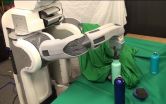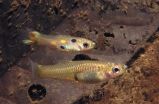One of the focus topics at this year's meeting was a spate of recent trials showing a benefit for mechanical thrombectomy in acute stroke. "For the first time, we are seeing significant improvement in outcomes in about one-third of patients who qualify for the procedure, when it is performed at the right time, by the right people," EuroPCR co-chair Dr. William Wijns explained. "We are humbly asking interventional colleagues to consider the data, then go home and check whether this is being offered in their community and if not, is it something that could be implemented?"
Interventional stroke procedures are more complex than primary PCI for STEMI, Wijns stressed, and they require imaging and collaboration with other experts. But it is an intervention that is coming of age, and interventional cardiologists need to be aware of it, he said.
Coronary Interventions
Regarding highlights in the sphere of coronary interventions, Wijns pointed to the many sessions devoted to chronic total occlusions (CTOs). "What we are seeing is that CTO intervention is evolving almost as a subspecialisation within coronary intervention, requiring very dedicated and sophisticated skills. But clearly, the people who have mastered those skills are able to restore vessel patency beyond what was ever thought possible in the past."
A wide range of coronary sessions also addressed the question of stent thrombosis among other ischemic events and appropriate dual antiplatelet therapy in patients receiving newer generation stents, including bioabsorbable polymers and platforms. "It's increasing clear that signals around stent thrombosis were related to procedural techniques, patient selection, vessel preparation, and stent expansion," Wijns observed.
Structural Disease and Hypertension
In the valvular heart disease arena, Wijns pointed to new data showing safety and efficacy of transcatheter valves in lower-risk patients; new devices and techniques for reducing periprocedural stroke risk; new strategies for reducing paravalvular regurgitation; and new insights into anticoagulant and antiplatelet regimens in TAVI patients. The progress in all of these areas can be "very subtle" but may have large trade-offs at a population level, he said.
Lastly, on the renal denervation front, EuroPCR 2015 coincided with the release of the publication of a European expert consensus document on the way forward for research on interventions in hypertension. "This document is very timely and gives us a better idea of what studies need to be done. We've also seen some interesting observations following reengineering of the procedure and refinement of the technique, for example, delivering ablation more distally in the arteries. So stay tuned."
Technique and Talking Points
Indeed, technique remains a key cornerstone of the meeting, Wijns explained. Specific sessions throughout the meeting are geared towards teaching attendees in a very detailed, step-by-step way how to learn or refine a specific skill, or how to treat a specific kind of complex lesion. "There is really a demand for those PCR branded sessions (Learning or Essentials) that you go into the tiny details of how you do the procedure and the step-by-step skills that you need."
At the same this, EuroPCR has also moved away from the traditional teaching theatre configuration for the majority of sessions, offering a range of didactic and interactive content in a more informal setting where armchairs and flip-charts replaced rows of seats and power-point presentations.
"These rooms are packed," Wijns observed. "We've heard from attendees that they want to bring new procedures home from EuroPCR, but one of their main objectives in coming here is to discuss and share their experiences with their colleagues, and to reassure themselves that they are treating patients appropriately, that their skills and approaches are in line with their peers."
Nurturing Talent
A new feature of this year's meeting was the rapid fire "PCR's Got Talent" sessions, modelled after the popular song-and-dance television talent shows. Authors of the twenty top-scoring abstract submissions were invited to deliver the four key points from their studies in just three minutes -- with no slides -- to an audience of their peers and EuroPCR judges. The top eight abstracts proceeded to the second round (where slides were permitted) on Thursday, whittled down to four for the "finals" on Friday.
The idea, Wijns explained, is not only to give a new twist to important new data but also to help junior colleagues get some professional coaching on their delivery skills, and, in round two, expert advice on what makes for a good slide-set.
"These up-and-coming clinicians and researchers will be the expert leaders of tomorrow: that's the sort of talent EuroPCR wants to nurture and attract."
EuroPCR is the official annual meeting of the European Association for Percutaneous Cardiovascular Interventions (EAPCI), a registered branch of the European Society of Cardiology. This year's meeting hosted live cases broadcast from 11 different countries and attracted 12,001 participants from around the globe, of which 71% are practicing physicians or allied professionals.
INFORMATION:
Notes to Editors
For more information on the abstracts featured in this press release, please contact Isabelle Uzielli, email: iuzielli@europcr.com
Further information on press registration may be found at http://www.europcr.com/page/press/619-press.html
What is EuroPCR?
EuroPCR, the official annual meeting of the European Association for Percutaneous Cardiovascular Interventions (EAPCI), a registered branch of the European Society of Cardiology, is the world-leading course in interventional medicine. PCR has established a distinctive format for educational activities in the field of cardiovascular interventions. Beyond its flagship course in Paris that gathers more than 12,000 participants every year, PCR organises annual courses in Singapore, London, Dubai and Cape Town. For further information on EuroPCR, AsiaPCR/SingLIVE, PCR London Valves, GulfPCR-GIM, AfricaPCR & PCR, please contact: Anne-Sophie Lartigau at aslartigau@europa-organisation.com.
For more information, please visit http://www.europcr.com

